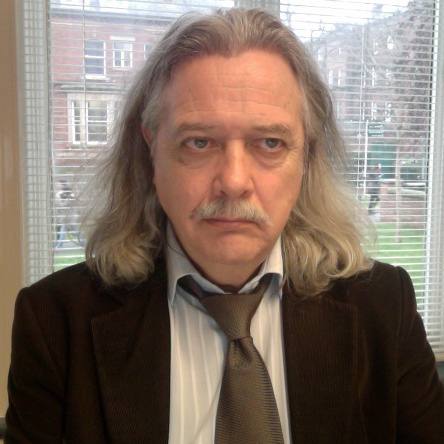
Biography
Derek B. Scott was born in Edgbaston, Birmingham, in 1950 and came to music largely through the encouragement of his maternal grandmother, who was a pianist. Her grand-uncle, George Hope Johnstone, a friend of Edward Elgar, had been influential in the musical life of Birmingham as Chairman of the Midlands Institute and the Triennial Music Festival (one of his first commissions was Elgar’s Dream of Gerontius). Scott studied for a higher degree in composition at the University of Hull (1972–74) with Anthony Hedges, one of the UK’s leading composers of light music. During his early career in the 1970s, he was the co-founder and musical director of a contemporary chamber orchestra (Kanon), which was based in Hull but also performed at nearby cities such as Lincoln and Scunthorpe. He was awarded three national prizes for my compositions in that decade. He has composed music for concert hall and theatre, including an operetta, Wilberforce, staged in 1983 as part of Hull’s sesquicentenary commemoration of the passing of William Wilberforce’s Act for the Abolition of the Slave Trade (1807).
Having composed for performers ranging from the Northern Sinfonia to the Milton Keynes Chamber Orchestra in the 1970s, he began to experience doubts about the direction and purpose of his composing in the 1980s, especially since he had always been involved in popular music as well as concert music. In the 1980s, he became absorbed in researching the cultural history of music and, in 1992, he was awarded a PhD in the sociology and aesthetics of music. He was also the recipient in 2018 of an honorary doctorate from the Sibelius Academy, Finland.
His first appointment as a Professor of Music was at the University of Salford in 1996. It was at that University, which pioneered degrees in Band Musicianship in the UK, that he composed most of his music for brass band, which included two symphonies for brass and percussion (recorded by the Black Dyke Band in 2019 and recorded in their orchestral versions by the Liepāja Symphony Orchestra under the baton of Paul Mann in 2022). His compositional output was usually driven solely by personal compulsion. For instance, as a player of the Highland Bagpipe, he felt an urge to write a short concerto for that instrument. In 2006, he was appointed Professor of Critical Musicology at the University of Leeds and found himself under considerable pressure to produce musicological publications for submission to research-assessment exercises, which have a big effect on the funding universities receive from the government. Since retiring he has been involved in several recordings for Toccata Classics, including a disc of songs for baritone and chamber ensemble and two volumes of his orchestral music (a third should be released in 2023).
